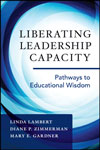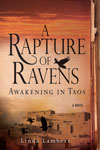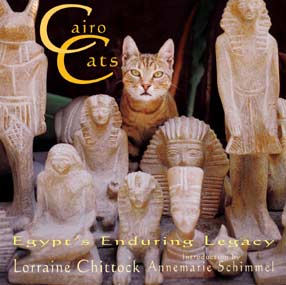Egypt
« Older Entries Newer Entries »Following in the Footsteps of The Cairo Codex: 72 Hours in Cairo
Monday, August 5th, 2013
As of this moment, the U.S. State Department is advising against traveling into Egypt—unless you want to start with Sharm el-Sheikh on the glorious Sinai Peninsula, travel westward to Saint Catherine’s Monastery and climb Mount Sinai where Moses received the tablets from God. By that time, the mainland of Egypt (the Sinai is actually in Asia, cut off by the Suez Canal) will be safe. Egypt always swings back toward safety and gracious hospitality.
If not now, then soon you will want to make the trip of a lifetime leading through the haunts in The Cairo Codex: the scenes where anthropologist Justine Jenner made the world’s most profound discovery, was enchanted and romanced, kidnapped and terrified, stunned and surprised. Travel with a friend, a lover, for you’ll want long conversations and romantic evenings. Now come with me into this land of mystery….
The new airport in northeast Cairo is quite accommodating. If you didn’t obtain a visa before you go, you can buy one at the airport. Taxis are no longer allowed to park inside the airport, so secure a car or limousine at an official-looking desk to take you the forty minutes or so to the Shepheard Hotel. Make reservations through Booking.com (ask for a two-level room facing the Nile.)
When you have checked in at your hotel, if it is still light outside, cross the street and walk along the Corniche bordering the Nile. Take a whiff of roasting corn, purchase a garland of jasmine from a young girl, observe the Cairenes strolling the riverfront. Note the felucca boats swaying in the water below. Reserve one for the following evening. Return to your room for the sunset (first night only), order a bottle of Grand Marquis cabernet from room service, and have dinner in the Caravan Restaurant downstairs. Arrange with the hotel for a car and English-speaking driver the next morning and get a good night’s sleep, for your 72 hours starts in the morning. Day 1 posting tomorrow.
Posted in Egypt, Fiction, Travel | 1 Comment » | Leave a Comment
Poisoned Pen Review: The Cairo Codex
Tuesday, July 30th, 2013
This well written debut novel by Professor Emeritus Lambert who once served as a State Department Envoy to Egypt is both meaningful and entertaining. Meaningful in that she walks us inside modern Cairo-it’s 2007 in the story-with its many communities in the Old and fast-growing new city, the growing factionalism affecting the secularists, moderate Muslims, the Copts, Jews, scholars, tourists, etc. Her tone is sympathetic, her view well rounded, she’s an informed tour guide. How shall I be a modern Egyptian woman, thinks Justine, conscious of her dual heritage. The backstory begins in 2CE in the family of elderly carpenter Joseph and his family who’ve been living in a cave in that part of Cairo called Babylon for several years, refugees from Israel (Palestine). The bridge is the small, battered, diary kept by Joseph’s wife and found by accident when Justine is trapped in a cave under the ancient church of St. Sergius during an earthquake and aftershock. There’s a death in the modern day as several agendas clash once the discovery of the book and its contents become known. So not Dan Brown, in fact more Bruce Feiler, part women’s fiction, part a meditation on three major religions and more (Tao figures in). The prose flows so comfortably it’s easy to gloss over the serious issues and read this for fun. Fans of Elizabeth Peters’ Amelia Peabody books will lap this up, too.
-Poisoned Pen Bookstore, Scottsdale, Arizona
Posted in Education, Egypt, Fiction, Taos, Travel | No Comments » | Leave a Comment
The Glorious Shepheard Hotel, Cairo
Friday, July 26th, 2013
Nothing was more romantic in The English Patient than the scenes in the old Shepheard Hotel. It burned down in the aftermath of the ’52 revolution. Here are some nostalgic meanderings from The Cairo Codex:
“Justine gazed up at the towering façade and memories of the original Shepheard crowded her mind. The memories were older than she was and didn’t belong to her, but rather to her grandmother Laurence, who had spent many afternoons having tea on the sweeping terrace with her parents.
She remembered hearing stories of the great hotel as the playground of adventurers and travelers from all over the world. The shaded terrace where her grandmother must have sat in deep wicker chairs held a commanding view of Ibrahim Pasha Street. The grand entrance encircled a spiral staircase leading to the Moorish Hall, deliciously cool and dimly lit by rays coming through a huge dome of colored glass. Laurence had described plump, embroidered chairs set around little octagonal tables. Intimacy with discretion had been the watchwords of its glamorous clientele…Churchill, Lawrence of Arabia, Roosevelt, princes, sheiks, queens, and great authors. The original Shepheard, like the glory days of Cairo, had been consumed by fire some fifty-five years ago.”
But today’s Shepheard, where we lived when first we moved to Cairo, then returned to over and over, has few regrets. It now sets on the Nile and boasts of lavish and glorious surroundings:
“The old Shepheard did not have a monopoly on ornate beauty, she realized. Chandeliers of amber glass reflected on richly carved wood known as mashrabaya, accented with lines of exquisite arabesque lettering. Gothic arches and flourishing palms towered over marble floors, and lamps shaped like lotuses lit the room. Above, a marble balcony circled the eastern side of the room, serving as counterpoint to the huge windows overlooking the Corniche and the Nile to the west.”
During your visit to Cairo, I would highly recommend the two-level rooms in the Shepheard overlooking the Nile…. Starting soon, the three-part series, Following in the Footsteps of The Cairo Codex: 72 Hours in Cairo, begins.
Posted in Egypt, Fiction, Travel | No Comments » | Leave a Comment
Could the Virgin Mary have been literate?
Tuesday, July 23rd, 2013
It’s more than plausible. Mary of Nazareth’s grandmother, Faustina, came from Mt. Carmel north of Jerusalem. This community was a stronghold of the Essenes, the peoples who wrote the Dead Sea Scrolls. In The Cairo Codex, Mary discusses women, writing, and equality with her son, Jesus:
…“Why the papyrus? For writing to family in Palestine?”
“Yes, my son. Family members are hungry for news from us. They ask about how you and your brother are growing up and what it is like to live in this land. They miss us. And your father misses his family.” I take a few clusters of garlic from my pocket to hand to the scribe. My son hesitates before asking the question I knew was pressing on his young mind.
“I have noticed that Rachel and Noha do not write. Can only some women write?”
“All women can write if they are taught how. Just as you were taught to read and write….”
“How did you learn to write, Mother?” my son says, balancing on the edge of the rock and folding his tunic between his tanned legs.
“It is unusual for women to learn to write. You observed well. I was fortunate. My grandmother taught me when I was but a girl. She thought it important for women to be able to do many of the same things men do. Grandmother considered inequality the source of all evil. I wish you could have known her.”
“What did she mean ‘inequality is the source of all evil’?” he puzzles. The tea arrives in two chipped, unmatched cups. I hand the boy a cluster of garlic. My son has an inquiring mind, much like I was as a child. “What do you think she might have meant?”
“I don’t know. To me, most people seem unequal; Noha is not like Rachel, Isaiah is not like Samir.”
“I see the same things. But Grandmother also talked of inequality between the rich and poor, men and women, the educated and uneducated, the old and the young, Jews and pagans, Romans and Israelites. These inequalities lead to misery, hatred and wars, which are evil. Her family came from Mt. Carmel and had many strong ideas about how life should be lived. Many of these ideas I carry with me.”
“But why did God make us unequal if He wanted us to be equal? I don’t understand.”
“I’m not so sure God made us so. Perhaps we did that to ourselves. It is we who choose to obey the powerful and deprive others of their rights. Perhaps God gave us these choices to test our compassion.”
Women, writing, and equality are elegantly interwoven. That is why we are compelled to educate young girls.
Posted in Education, Egypt, Family, Fiction, Travel | No Comments » | Leave a Comment
Cairo’s City of the Dead and Girls Education
Monday, July 22nd, 2013
A Community Schools for Girls in the City of the Dead challenges pre-conceptions about what is possible in non-traditional communities. Again, from the forthcoming The Cairo Codex:
“The City of the Dead. Nearly a million of the living joined the thousands buried in Cairo’s notorious cemetery, an area nearly as large as Venice. Small tombs that looked like dollhouses had become home to families who subsisted without basic plumbing and water services. For years, the government had sought to dispel this encroachment upon holy ground, but it had finally given up. Now, small shops and an occasional water faucet made life there somewhat more bearable.
Justine felt as though she was still observing the scene with the uncomprehending eyes of the teen she’d been when her father had brought her there. Flies crowded around the eyes and mouth of the small girl of about five who stood in front of her. Her curly hair, the same color as her skin, looked as though it had never been combed. She wore a faded pink cotton dress with a sash that had come loose on one side; the long sash with a bow in the middle touched the dirt near her bare feet. The young girl stared intently at a dead donkey lying in the middle of the street. Across the back legs of the donkey lay a dog, both surrounded by flies.
She couldn’t take her eyes off the girl. She wanted to hold her, to comb her hair, to chase away the flies, to sew her sash. Such a beautiful child. What does it mean to care? Her western notions connected caring with cleanliness and order and combed hair…and battling flies.
As though on cue, a somewhat older girl emerged from the doorway beside the child. The older girl was wearing a clean blue and white school uniform and carrying a backpack, ready for school. The contrast between the two girls was disconcerting.”
These schools, the reason Justine came to Cairo, are at the heart of the women’s movement in Egypt—in sharp relief from the echoes of abuse now plaguing the great country.
Posted in Education, Egypt, Fiction, Travel | 1 Comment » | Leave a Comment
I was Sexually Harassed in Cairo, but…
Sunday, July 21st, 2013
The recent data on sexual harassment, attacks, rapes, and death of women in Egypt is deeply disturbing. It is as though the Islamist ascendency has awakened the fury against women under the thin patina of civilization. The recent UN report (see the NY Times article by Bruni that I recently posted on Facebook) estimates harassment at 93%+.* Ninety women journalists were sexually harassed in the last few months. In The Cairo Codex (West Hills Press, to be released 8/13), I described my own earlier incident through the experience of my protagonist, anthropologist Justine Jenner:
“…By the time she reached the Roman aqueduct, cutting east through the city, the town was waking up. Bean pots on rollers moved into the side streets; bakers raised their storefronts, displaying layers of Egyptian baladi bread that resembles pita. Young men on bicycles took to the streets.
About a mile from the hotel, she stopped. In this part of the city, new or maintenance construction gave way to houses and stores scarred by vehicle exhaust crumbling around the edges, pressed together like crowded children scrambling for a ball.
Turning away from the Nile, Justine stood for a moment to get her bearings, bending over, hands on her thighs, stretching her back. A hand, not her own, reached under her from behind, firmly stroking between her legs then withdrawing as quickly as it had arrived. A wave of terror shot through her stomach and chest. For a moment, she couldn’t believe what she’d felt. She swung around to see a stooped man in a gray kaftan and woolen scarf limping swiftly away.
She could have caught him easily, but what would she say? What would she do? Would the authorities pay her any mind? Not in Egypt. She turned and ran back to the hotel, stumbling occasionally, shaken by the violation.”
However—and this is a fierce however—that is not my usual experience of Egypt. I have always found Egypt safe, where I could venture into side streets, Tahrir Square, go out in the evenings with other women. So what has happened? What is different?
* I have had questions about UN estimates in the past, including their projection that 95% of Egyptian women have had a clictorectomy.
Posted in Articles, Egypt, Fiction, Travel | No Comments » | Leave a Comment
Egypt: A Justified Coup?
Friday, July 5th, 2013
Posted in Egypt, Leadership, Travel | 2 Comments » | Leave a Comment
NPR Interview-Egypt in Crisis
Friday, July 5th, 2013
https://soundcloud.com/kgua/linda-lambert-on-the-july-3rd
Posted in Education, Egypt, Fiction, Leadership, Travel | No Comments » | Leave a Comment
Do fictional characters have to be fictional?
Monday, June 24th, 2013
Writing coaches are notorious for saying so—same with writing tutors, magazines, etc. However, many authors, such as one of my favorites, D.H. Lawrence, constructed his characters from the people he knew best—and sometimes got himself in a lot of trouble because of it.
As I ventured into research for The Justine Trilogy—in Cairo, Italy, and Taos—I met fascinating characters: an ambassador, Director of Antiquities, Minister, and a revolutionary in Cairo; a striking geneticist and novelist in Ferrara, a museum director in Fiesole, a Baroness in Tuscany; three archeologists and Pueblo Indians in New Mexico…. A Greek historian here, and Lawrence scholar there. How could I ignore such a rich mine of flamboyant characters?
What was I to do? So, I asked them if they would consent to being characters in my novels. To a person, they were delighted. (However, I will admit that I never directly asked the Supreme Director of Antiquities—but I did rename him!)
What do you think about this lovely conundrum?
Posted in Egypt, Fiction, Italy, Taos, Travel | No Comments » | Leave a Comment
Book Give-Away! Cairo Cats
Sunday, May 5th, 2013
Pre-order my novel The Cairo Codex, e-mail me the receipt, and if you are among the first 20, I will send you a copy of the remarkable Cairo Cats by friend Lorraine Chittock.
“Lorraine Chittock’s photographs could convert the most hardhearted cat hater.” – The Washington Post
Lorraine Chittock’s fascination with Egyptian cats culminated in the gift book, Cairo Cats—Egypt’s Enduring Legacy. During her seven years in Cairo, Ms. Chittock was a wildlife tracker in an urban environment, exploring the nooks and crannies where the feline denizens of the city hide. Cairo Cats pairs intimate and thought-provoking photos with apposite literary passages, tempting the reader to explore tidbits of folklore, religion and poetry from Egypt and the Middle East. Cairo Cats educates in an entertaining and non-threatening way about one of the world’s most complex regions.
The introduction for Cairo Cats was written by Annemarie Schimmel, (1922-2003) a revered and prolific scholar of Islam who taught at the Universities of London, Ankara, Bonn and Harvard. Dedicating her life to encourage a better understanding of the Islamic world, she lectured in more than six languages and published 80 books as well as providing a loving home for her feline friends.
Posted in Egypt, Fiction, Travel | 1 Comment » | Leave a Comment





 Conceptions of leadership have evolved, and Liberating Leadership Capacity captures these new ideas and provides a pathway to create sustainable systems of high leadership capacity. Available April 2016 from
Conceptions of leadership have evolved, and Liberating Leadership Capacity captures these new ideas and provides a pathway to create sustainable systems of high leadership capacity. Available April 2016 from  A sizzling new novel set in Taos, New Mexico. The third in the Justine Trilogy, preceded by the award-winning, The Cairo Codex and The Italian Letters. Buy it at your local independent bookstore,
A sizzling new novel set in Taos, New Mexico. The third in the Justine Trilogy, preceded by the award-winning, The Cairo Codex and The Italian Letters. Buy it at your local independent bookstore, 

